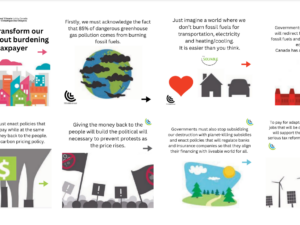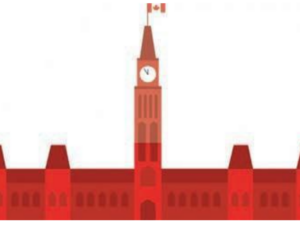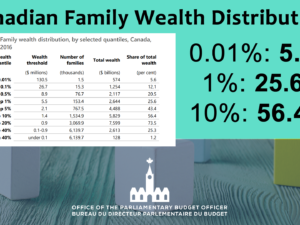The data is quite clear that we need a clear carbon pricing signal to de-risk clean technology adoption FOR IMMEDIATE RELEASE: June 20, 2017 Sudbury ON: Citizens’ Climate Lobby (CCL) urges the Government of Canada to adopt the recommendations tabled unanimously by the Standing Committee on Natural Resources (RNNR) on June 9 on de-risking clean technology adoption in the natural resources sector. Some of these recommendations encourage market-based solutions to address the climate crisis. “We applaud the cross-party cooperation on this important document,” says Cathy Orlando, the National Director of CCL Canada. On June 16, Orlando, along with CCL volunteers, Gerry Labelle and Carole Lavallée, met with MP Marc Serré, a member of the RNNR to discuss the report. “Since 2013, we have been sharing the valuable work of Céline Bak, the President of Analytica Advisors with our Members of Parliament, including Mr. Serré,” said Orlando. “According to their findings, between 2005 and 2014 Canada’s ranking fell in clean tech sales globally fell from 14th to 19th. The data is quite clear that Canada needs a clear carbon pricing signal to de-risk clean technology adoption.” In the report, Ms. Céline Bak of Analytica Advisors said: “Clean technology firms operate in areas in which prices for the commodities they replace, including energy derived from oil and gas, are volatile and in which prices for the externalities they reduce, including carbon, are in fact still negative.… This is because in Canada we have tax expenditures in the form of subsidies to the fossil fuel industry, … [which] under the most conservative method of calculation, are estimated to be $3.5 billion in direct fiscal subsidies and $3 billion in publicly funded loans.” The report’s eight recommendations include: Chaired by James Maloney, M.P., the Committee comprises: Liberals T.J. Harvey, Denis Lemieux, Mary Ng, Marc Serré and Geng Tan; Conservatives John Barlow (Vice-Chair), Mark Strahl, and Shannon Stubbs; and New Democrat, Richard Cannings (Vice-Chair). The report is available on the Committee’s website, http://www.ourcommons.ca/ Committees/en/RNNR “Congratulations, RNNR Committee, for putting out such a well thought-out report. Though not a policy wonk, at first sight, I am in favour of all eight recommendations, most especially that of ensuring that the forthcoming and welcomed Canadian national price on carbon pollution be evidence-based and transparent,” remarked Carole Lavallée from Chelmsford. ###
Climate Lobbyists applaud government committee report on de-risking clean tech adoption in Canada
Contact: Cathy Orlando, National Director, cathy@ citizensclimatelobby.org 705-929-4043
MEDIA RELEASE: Climate Lobbyists applaud government committee report on de-risking clean tech adoption in Canada
Home » CCL Canada News » MEDIA RELEASE: Climate Lobbyists applaud government committee report on de-risking clean tech adoption in Canada
MEDIA RELEASE: Climate Lobbyists applaud government committee report on de-risking clean tech adoption in Canada
Posted on June 20, 2017 in Media Release







